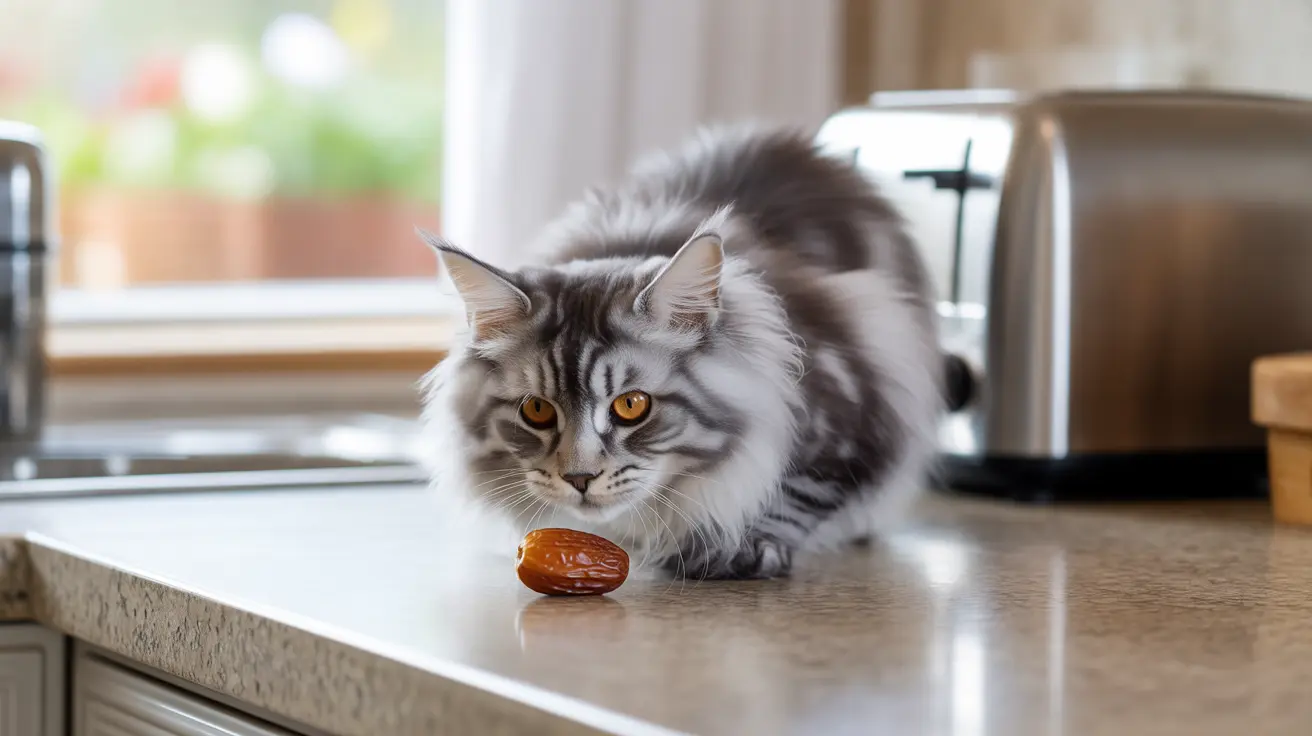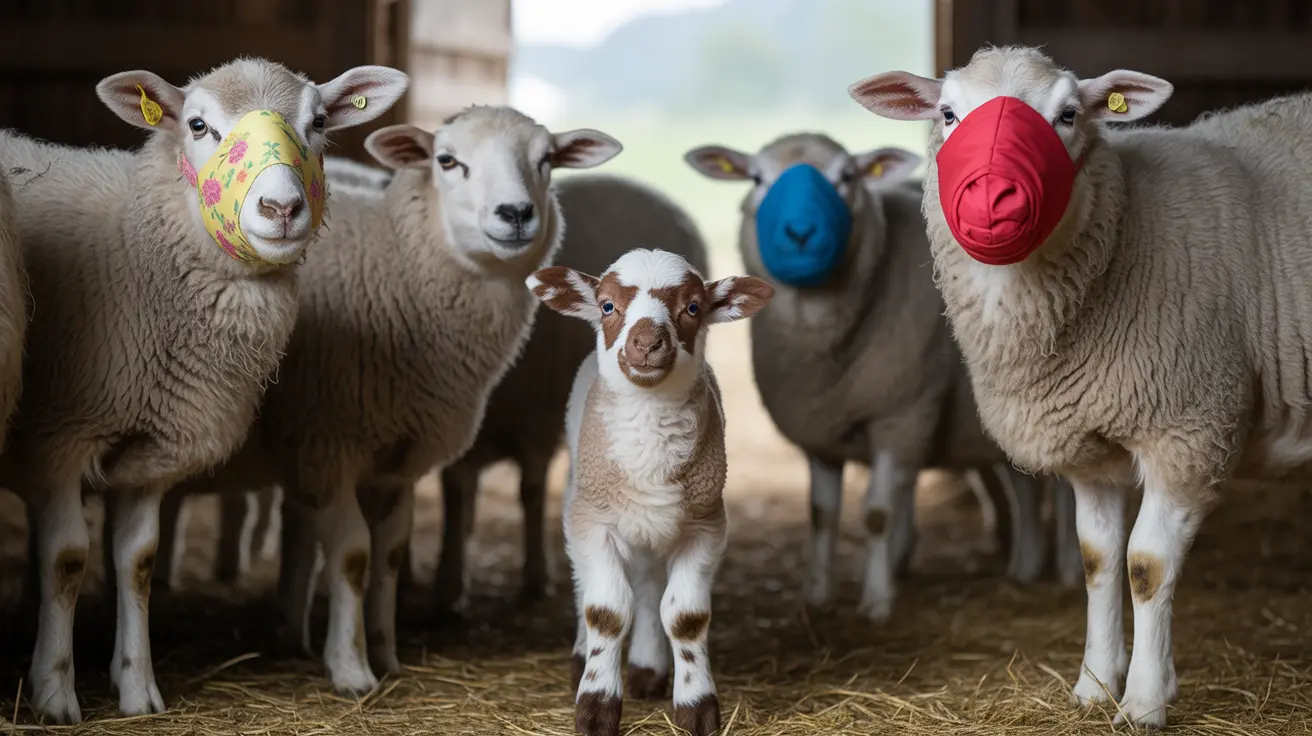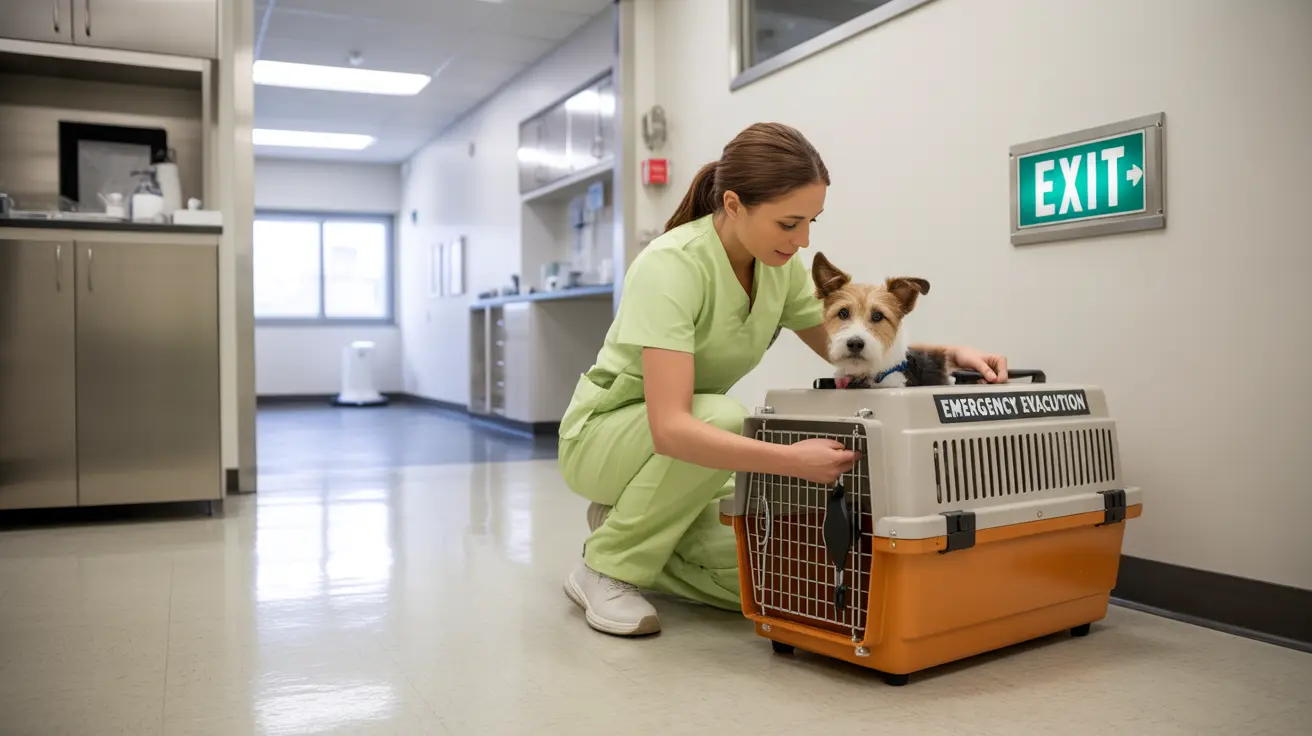As cat owners, we often wonder about sharing human foods with our feline friends. Dates, those sweet Middle Eastern fruits, might catch your cat's curiosity, but should they be part of your pet's diet? While dates aren't toxic to cats, their safety and nutritional value require careful consideration.
This comprehensive guide explores everything you need to know about cats and dates, including potential risks, safety guidelines, and what to do if your cat consumes these fruits.
Are Dates Safe for Cats?
Dates aren't inherently toxic to cats, unlike grapes or raisins. However, "safe" doesn't necessarily mean "recommended." While a tiny piece of date (roughly pea-sized) likely won't harm a healthy cat, these fruits come with several considerations that make them less than ideal for feline consumption.
The Nutritional Impact of Dates on Cats
Cats are obligate carnivores, meaning their bodies are designed to process and utilize nutrients from animal-based proteins. While dates contain fiber, potassium, and various vitamins, these nutrients aren't easily processed by your cat's digestive system.
Why Cats Don't Need Dates
Your cat's body is specifically designed to:
- Process animal proteins
- Extract nutrients from meat-based sources
- Function without the need for fruits or complex carbohydrates
Health Risks Associated with Feeding Dates to Cats
Sugar Content Concerns
Dates contain extremely high levels of natural sugars, which can lead to:
- Weight gain and obesity
- Dental problems
- Increased risk of diabetes
- Digestive upset
Physical Hazards
Beyond nutritional concerns, dates present several physical risks:
- Choking hazards from date pits
- Potential intestinal blockages
- Sticky texture that can damage teeth
- Difficulty swallowing due to the fruit's consistency
When to Contact Your Veterinarian
Seek immediate veterinary attention if your cat shows these symptoms after eating dates:
- Persistent vomiting or diarrhea
- Signs of intestinal blockage
- Difficulty breathing or swallowing
- Unusual lethargy or behavioral changes
Better Alternatives to Dates
Instead of dates, consider these safer treats for your cat:
- Commercial cat treats designed for feline nutrition
- Small pieces of cooked lean meat
- Veterinarian-approved cat-specific snacks
Frequently Asked Questions
Can cats safely eat dates, and how much is allowed without risk?
While cats can technically eat dates without toxicity concerns, it's best to avoid them entirely. If you must offer a date, limit it to a tiny, pea-sized piece, completely pit-free, and only occasionally.
What are the health risks for cats eating dates regularly?
Regular date consumption can lead to obesity, dental problems, digestive issues, and potential diabetes. The high sugar content and fiber can cause stomach upset, diarrhea, and other gastrointestinal problems.
How can I safely feed dates to my cat if I choose to offer them?
If you decide to offer dates, remove all pits, cut the fruit into very small pieces, and give only a minimal amount. Always monitor your cat for any adverse reactions afterward.
What should I do if my cat accidentally eats a date pit or too many dates?
Monitor your cat closely for signs of distress, choking, or digestive issues. If you notice any concerning symptoms or suspect your cat has swallowed a pit, contact your veterinarian immediately.
Why do cats seem interested in dates if they cannot taste sweetness?
Cats are attracted to dates due to their texture and aroma, not their sweetness. Cats lack sweet taste receptors but may be curious about new objects or drawn to the fruit's unique smell and consistency.
While dates aren't toxic to cats, they offer no nutritional benefits and pose several health risks. It's best to stick to specially formulated cat treats and foods that meet your feline friend's specific dietary needs. Always consult with your veterinarian before introducing any new foods to your cat's diet.






